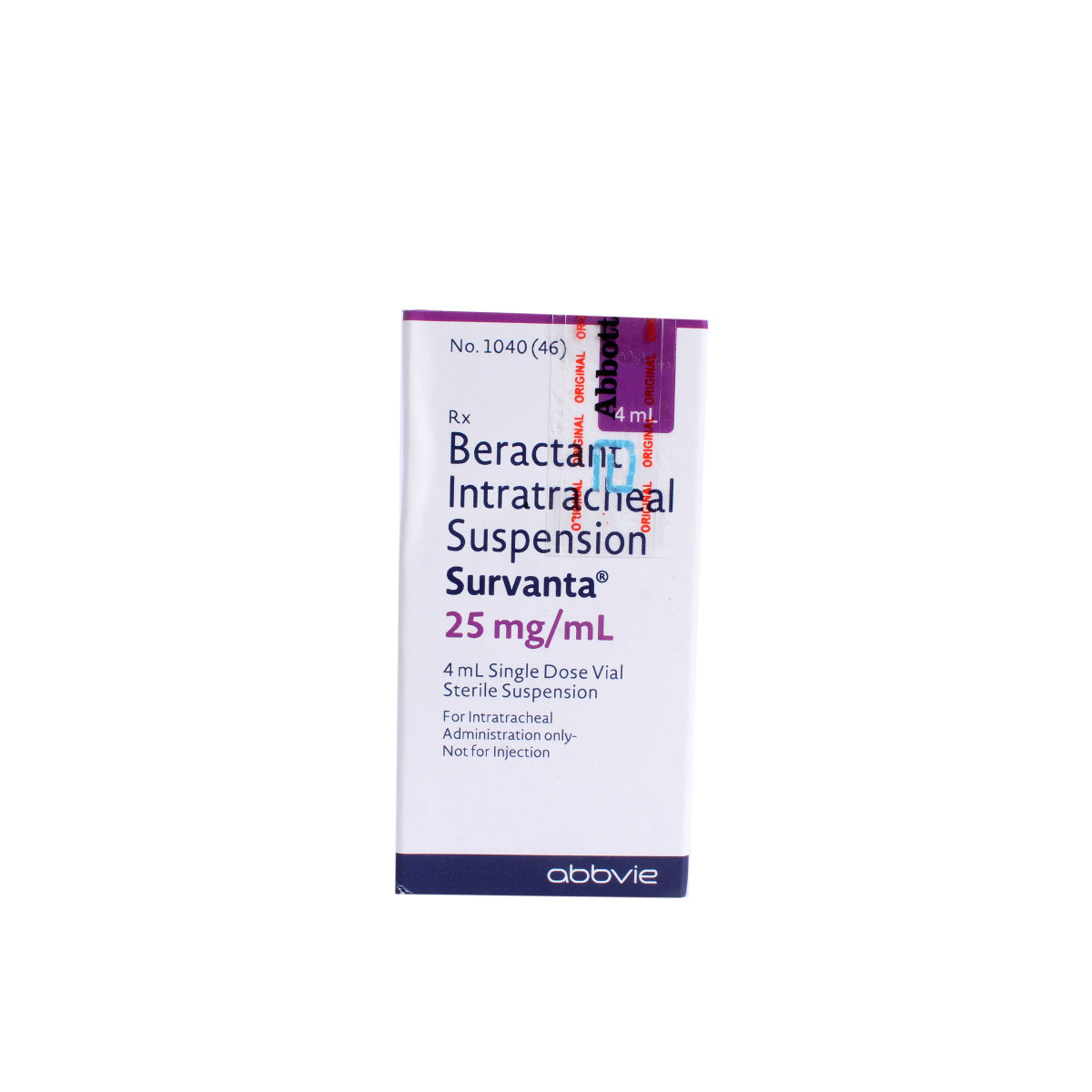Beractant
About Beractant
Beractant belongs to a class of drugs called pulmonary surfactants. It is used in the treatment/prevention of premature infants suffering from or at risk of a condition called respiratory distress syndrome (RDS). Respiratory distress syndrome, or RDS, is caused by insufficient lung surfactant.
Beractant contains Beractant, a natural surfactant that acts similarly to the baby's own surfactant, helping your baby to breathe normally. It will help your baby breathe normally until it produces its own surfactant.
Beractant will be given to your baby in a hospital by a suitably trained doctor. Sometimes, Beractant may cause a slow heart rate, endotracheal tube blockage, and low blood oxygen levels. Talk to the doctor if you have any concerns.
The administration of Beractant to your newborn may impair your baby's lungs' ability to absorb oxygen. As a result, your baby will be closely monitored by a nurse or doctor so that oxygen and ventilatory support can be adjusted as needed. If your baby has any problems while being treated with Beractant, consult your doctor as soon as possible, even if you do not know the condition is related to the medicine.
Uses of Beractant
Medicinal Benefits
Beractant contains Beractant as a natural surfactant. Beractant is used to treat respiratory distress syndrome (RDS) in newborn premature infants weighing 700 g or more at delivery. It is also used to treat premature babies who are in danger of developing RDS and require a tube put into their windpipe for stabilisation or who have indications of surfactant deficiency. It functions similarly to your baby's own surfactant, assisting your infant in breathing healthily. It will allow your infant to breathe normally until his or her own surfactant is produced.
Directions for Use
Storage
Side Effects of Beractant
- Transient bradycardia (slow heart rate)
- Oxygen desaturation (drop in blood oxygen level)
- Moist breath sounds
Drug Warnings
Before using Beractant, make sure the doctor knows your child's medical conditions, sensitivities, and medications. Occasionally, episodes of slow heartbeat (bradycardia) and/or oxygen deficiency in the circulation have been reported during the dosing procedure. If these occur, dosing will be discontinued, and appropriate measures to relieve the condition will be initiated. The dosing procedure will be restarted once the individual has been stabilized.
Drug Interactions
Drug-Drug Interactions: No interactions found or established.
Drug-Food Interactions: No interactions found or established.
Drug-Disease Interactions: No interactions found or established.
Drug-Drug Interactions Checker List:
Safety Advice

Alcohol
not applicableIt is intended for Pediatrics.

Pregnancy
not applicableIt is intended for Pediatrics.

Breast Feeding
not applicableIt is intended for Pediatrics.

Driving
not applicableIt is intended for Pediatrics.

Liver
consult your doctorIf your child has liver problems, the doctor will weigh the benefits and potential risks before prescribing Beractant.

Kidney
consult your doctorIf your child has kidney disease, the doctor will weigh the benefits and potential risks before prescribing Beractant.

Children
safe if prescribedBased on your child's condition, your doctor will decide the suitable dose of this medicine.
Habit Forming
Patients Concern
Disease/Condition Glossary
Respiratory distress syndrome (RDS): RDS is mainly caused when the baby's lungs do not have enough surfactant. The earlier the infant is born, the more probable they may have RDS. Under such conditions, the baby requires extra oxygen, which is done through ventilatory support.
FAQs
Beractant contains Beractant, a natural surfactant that acts similarly to your baby’s surfactant, helping your baby breathe normally. It will help your baby breathe normally until it produces its own surfactant.
No, it is not necessary to use Beractant in all premature babies. It should be used only in premature infants suffering from or at risk of a condition called respiratory distress syndrome (RDS).
Beractant can be used in those whose pregnancy lasted less than 32 weeks, whose infants are in danger of developing RDS and require a tube put into the windpipe for stabilisation, or who have indications of surfactant deficiency.



